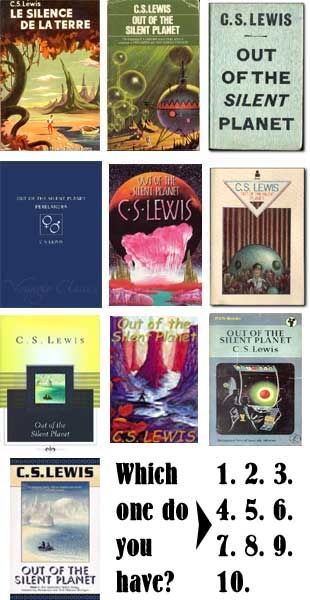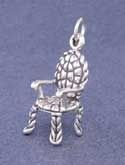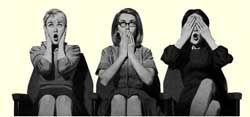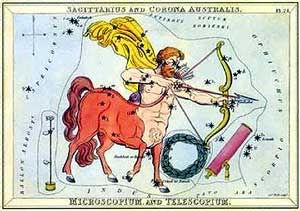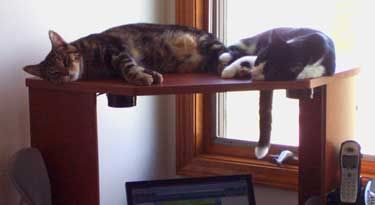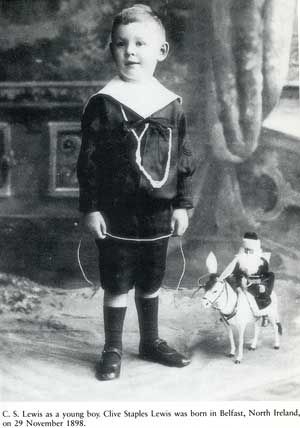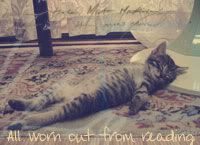[The devil Screwtape in a speech at the “Annual Dinner of the Tempters’ Training College for Young Devils":]
 In that promising land the spirit of I'm as good as you has already become something more than a generally social influence. It begins to work itself into their educational system . . . . The basic principle of the new education is to be that dunces and idlers must not be made to feel inferior to intelligent and industrious pupils. That would be "undemocratic." These differences between the pupils - for they are obviously and nakedly individual differences - must be disguised. This can be done on various levels. At universities, examinations must be framed so that nearly all the students get good marks. Entrance examinations must be framed so that all, or nearly all, citizens can go to universities, whether they have any power (or wish) to profit by higher education or not. At schools, the children who are too stupid or lazy to learn languages and mathematics and elementary science can be set to doing the things that children used to do in their spare time. Let them, for example, make mud pies and call it modelling. But all the time there must be no faintest hint that they are inferior to the children who are at work. Whatever nonsense they are engaged in must have - I believe the English already use the phrase - "parity of esteem." An even more drastic scheme is not impossible. Children who are fit to proceed to a higher class may be artificially kept back, because the others would get a trauma - Beelzebub, what a useful word! - by being left behind. The bright pupil thus remains democratically fettered to his own age group throughout his school career, and a boy who would be capable of tackling Aeschylus or Dante sits listening to his coeval's attempts to spell out A CAT SAT ON A MAT….We shall no longer have to plan and toil to spread imperturbable conceit and incurable ignorance among men. The little vermin themselves will do it for us.The Screwtape Letters, ”Screwtape Proposes A Toast” (1959)___________________________________________________
In that promising land the spirit of I'm as good as you has already become something more than a generally social influence. It begins to work itself into their educational system . . . . The basic principle of the new education is to be that dunces and idlers must not be made to feel inferior to intelligent and industrious pupils. That would be "undemocratic." These differences between the pupils - for they are obviously and nakedly individual differences - must be disguised. This can be done on various levels. At universities, examinations must be framed so that nearly all the students get good marks. Entrance examinations must be framed so that all, or nearly all, citizens can go to universities, whether they have any power (or wish) to profit by higher education or not. At schools, the children who are too stupid or lazy to learn languages and mathematics and elementary science can be set to doing the things that children used to do in their spare time. Let them, for example, make mud pies and call it modelling. But all the time there must be no faintest hint that they are inferior to the children who are at work. Whatever nonsense they are engaged in must have - I believe the English already use the phrase - "parity of esteem." An even more drastic scheme is not impossible. Children who are fit to proceed to a higher class may be artificially kept back, because the others would get a trauma - Beelzebub, what a useful word! - by being left behind. The bright pupil thus remains democratically fettered to his own age group throughout his school career, and a boy who would be capable of tackling Aeschylus or Dante sits listening to his coeval's attempts to spell out A CAT SAT ON A MAT….We shall no longer have to plan and toil to spread imperturbable conceit and incurable ignorance among men. The little vermin themselves will do it for us.The Screwtape Letters, ”Screwtape Proposes A Toast” (1959)___________________________________________________
[The following series of cartoon strips appeared about five years ago in Doonesbury.]
Strip 1.
Provost to President: Sir, you’ll have to speak to the
faculty again about grade inflation. Standards are falling off the
chart. The pressure to pander is even affecting the math
department.
President: Math? How can that be? Aren’t there absolute
answers in math?
Provost: Well, yes and no.
President (to himself): Yes and no?
(Switch to classroom) Students in the back of the room:
17! 19!
Math Professor Deadman: Excellent guesses! Well done!
The next day’s Strip 2.
Student (sporting sunglasses): This B+ is wrong, Man!
You’re dissin’ me here big time!
Prof. Deadman: Mr. Slocum, I merely gave you the grade
you deserved.
Slocum: Can’t be, Man! This is way off base!
Deadman: As was your entire first proof, in which you held
the square root of 144 to be 15. It is, in fact, 12.
Slocum: Well, sure, from a narrow, absolutist, Eurocentric
perspective, maybe it’s 12.
Deadman: So?
Slocum: So my culture teaches it’s 15, Man!
Deadman: Fascinating. Would this be an advanced
civilization?
Strip 3, back to the president’s office.
President: Listen to me carefully, Deadman. These are
very tough times for small liberal arts colleges such as
Walden . . .
Deadman: I know, Sir.
President: And I’m sure you’ll agree that this college would
not exist without a critical mass of paying students . . .
Deadman: When you’re right, you’re right, Sir.
President: Deadman, do you know what would happen if
word got out that our grades corresponded to high standards?
Deadman: The college would become respected?
President: Exactly! A luxury we cannot afford!
Strip 4, in Professor Deadman’s office..
(Deadman , phone to his ear, listening to his wife)
Wife: Jules?
Jules: What is it, Honey?
Wife: Jules, someone just hurled a brick through our dining
room window!
Jules: My God! Are you OK, Sara?
Wife: I’m fine, but listen to the note, Jules: “Ease up on the
tough grading . . . or else!”
Jules: These d*** kids . . . They’re monsters!
Wife: Actually, it’s signed by the faculty!
______________________________________
On this day:
1929 Lewis's father, Albert, dies at age sixty-six.
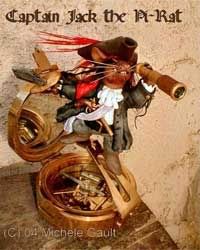 Reepicheep in your coloured picture has just the right perky, cheeky expression. I love real mice. There are lots in my rooms in college but I have never set a trap. When I sit up late working they poke their heads out from behind the curtains just as if they were saying, “Hi! Time for you to go to bed. We want to come out and play.”
Reepicheep in your coloured picture has just the right perky, cheeky expression. I love real mice. There are lots in my rooms in college but I have never set a trap. When I sit up late working they poke their heads out from behind the curtains just as if they were saying, “Hi! Time for you to go to bed. We want to come out and play.”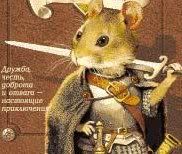
 I know myself what others know far better--how unfailingly courteous Lewis was in answering letters. I think I corresponded with him on three or four occasions. ..But there was a reply every time--it might be quite brief, but it was always written for you and for nobody else.
I know myself what others know far better--how unfailingly courteous Lewis was in answering letters. I think I corresponded with him on three or four occasions. ..But there was a reply every time--it might be quite brief, but it was always written for you and for nobody else. "Let us suppose that we are doing a mountain walk to the village which is our home.
"Let us suppose that we are doing a mountain walk to the village which is our home.


